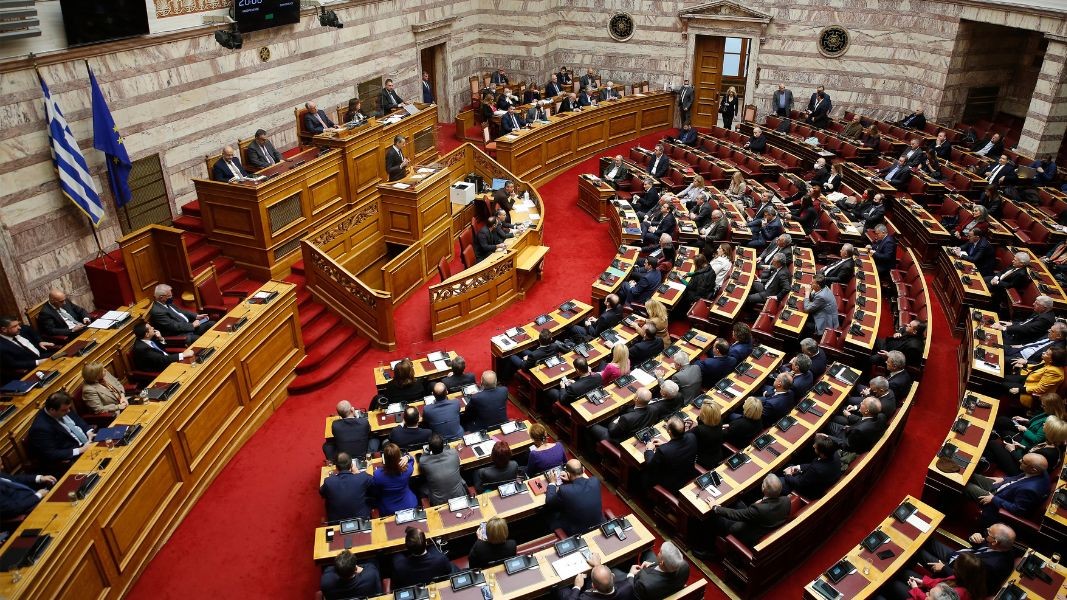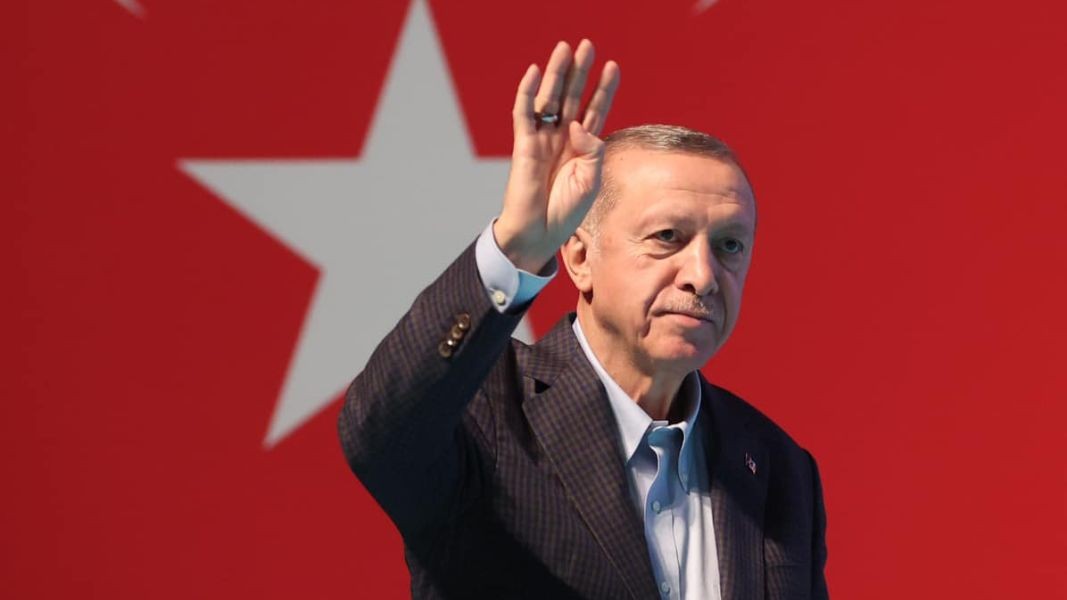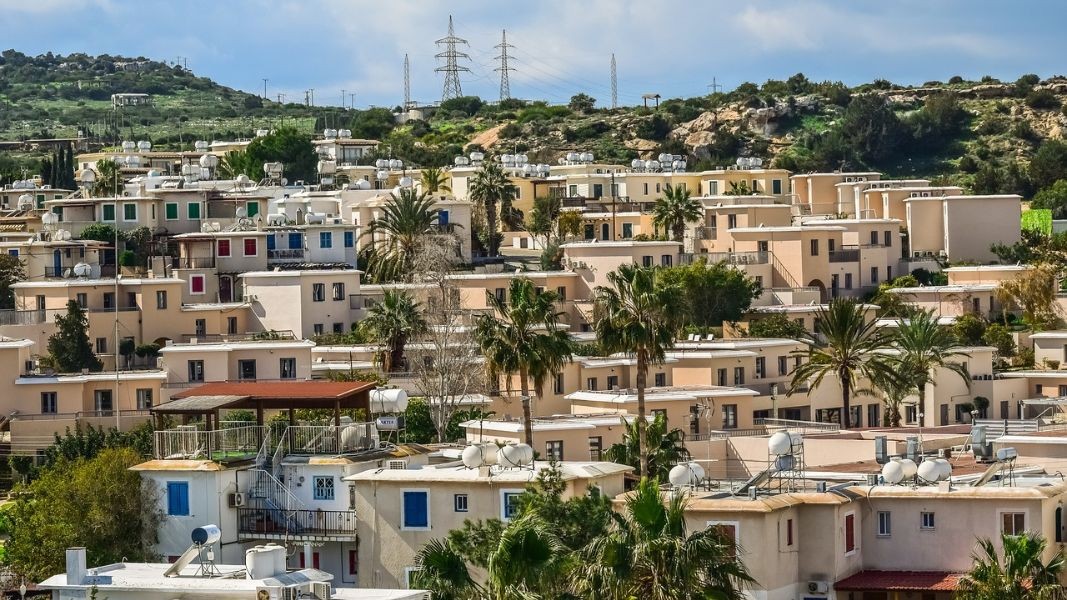Greece discusses ban on neo-fascist parties from running in elections

The Greek parliament is debating a possible ban on parties with an overt neo-fascist ideology from participating in elections. Polls show a clear risk of a neo-fascist party entering the Greek parliament. The government has planned amendments to the electoral code to ban these party groups from running in elections. The planed amendments include conditions that exclude candidates who have been sentenced for serious crimes, BNR correspondent Katya Peeva reported. She recalls that leaders of the "Golden Dawn" party have been convicted and some party members are serving sentences for murders of political opponents and attacks on migrants. The former deputy party leader, who is serving an effective prison sentence, has created a party that could pass the threshold and enter parliament. Part of the opposition fears that the adoption of such a change in the law can also affect left-wing political forces in the future.
Turkey remains firm in blocking Sweden's NATO membership

Turkey has a positive view of Finland in NATO, but does not support Sweden joining the alliance as long as it allows attacks on Islam's holy book, the Koran. This was what Turkish President Recep Tayyip Erdogan said after Danish-Swedish far-right extremist Rasmus Paludan burned copies of the Koran last week, first in front of the Turkish embassy in Stockholm and then in front of a mosque in Denmark. At the backdrop of Erdogan's speech, the governments of Finland and Sweden reaffirmed their commitment to join NATO together, despite opposition from Turkey. However, a survey among Finns conducted in the period January 30 to February 1 shows that only 28% think that Finland should wait for Sweden. In response to criticism from Ankara, Sweden's government introduced new legislation to ban activities related to extremist groups, which it says will punish not only those who sympathize with terrorist acts, but also anyone connected to terrorist organizations, Anadolu Agency reported.
Hundreds of debtors' properties are being sold in Cyprus

Hundreds of mortgaged properties in Cyprus are up for auction. From February 1, the country's banks started sending letters about the upcoming procedure to their debtors who do not repay the loans taken, after the last three-month moratorium voted by the parliament to ban the sales expired on January 31. The first auctions announced by the banks are expected to take place in mid-March, 45 days after the letters were sent, BNR correspondent Branislava Bobanats reported. According to forecasts, sales can reach around 100-200 per month. Such type of properties have piled up as the process was frozen for a year and a half. The moratorium protected a primary residence worth up to €350,000, business premises with an annual turnover of up to €750,000 and plots of land worth up to €100,000. The functioning of an effective regulatory framework for the management of non-performing loans and the sale of mortgaged properties is one of the key requirements of the European Commission under the Cyprus Recovery and Resilience Plan.
Romania to subsidize households with up to 610 million euros for photovoltaics

Romania plans to subsidize households with up to 610 million euros for the installation of solar panels, a fourfold increase compared to the previous year. Prime Minister Nicolae-Ionel Ciucă said the Casa Verde Fotovoltaice program will cover 150,000 households. In 2022, approvals were issued for 39,000 out of more than 43,000 submitted applications, Romanian media website 3e-news reported. The program covers 30% to 40% of the costs of its beneficiaries. At the end of August, there were 23,785 prosumers connected to the distribution network in Romania, which is 75% more in comparison to the beginning of the year, it was reported.
Compiled by: Miglena Ivanova
English: Al. Markov
Photos: BGNES, Facebook /RecepTayyipErdoğan, Pixabay, Casa Verde Fotovoltaice
Political parties have commented on the Constitutional Court's decision to declare the results of the October 27 elections illegal. The court ruled that the Velichie party had passed the 4% threshold and would enter Parliament, and that the election of 16..
The Bulgarian National Assembly is holding an extraordinary meeting at which MPs are hearing the senior management of the Central Election Commission and the Information Service company regarding their actions in the Constitutional Court case..
Student protesters in Serbia call for a general strike Student protests against the government and President Aleksandar Vucic continue in Serbia for the fourth month. In an appeal on Instagram, the protesters called on..

+359 2 9336 661
